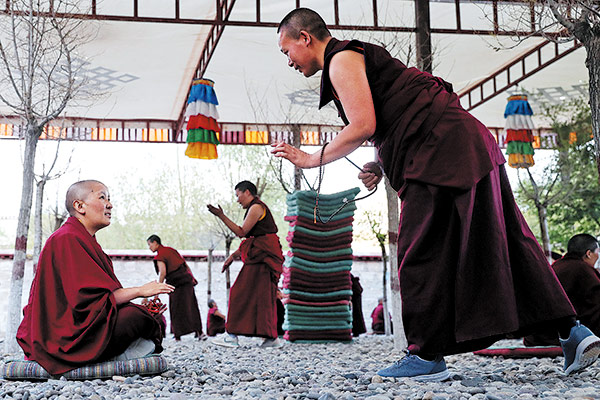

Opened in October 2011 over an area of 32.53 hectares, the school provides Buddhism education for 768 monks and 136 nuns from Xizang's over 450 monasteries.
The institute and its 10 branches in Xizang have more than 3,000 monks and nuns who are studying the sutras, and 240 received senior academic titles between 2005 and 2020, according to a white paper recently released by the State Council Information Office.
The white paper says that in Xizang, all religions and sects are equal, as are all believers and nonbelievers. There are more than 1,700 sites for Tibetan Buddhist activities, with 46,000 monks and nuns. Believers regularly participate in various religious and traditional activities.
In the general curriculum of the institute, Buddhism courses account for 60 percent of all courses, while political sciences and law, and liberal arts courses account for 20 percent respectively.
Kelzang Wangdu says it's important to train monks and nuns in both Buddhism and patriotism.
The institute recruits students from the major five sects of Tibetan Buddhism with a principle of fairness and equity, to encourage communication among different sects.
The institute exempts tuition fees and provides daily necessities, such as clothes, bedding and stationery. The daily food subsidy is 90 yuan ($14) per day per person.